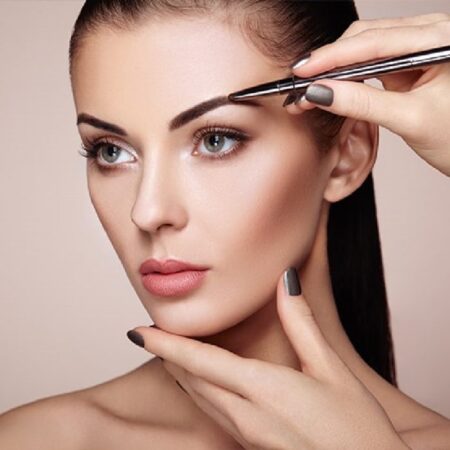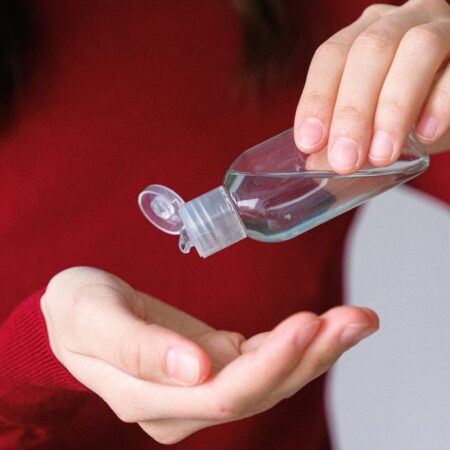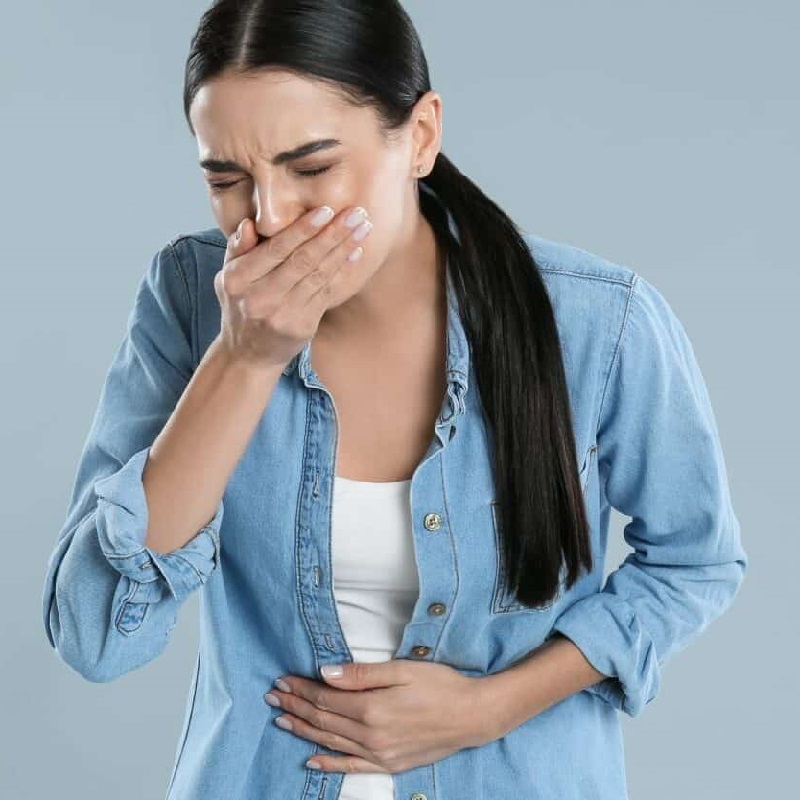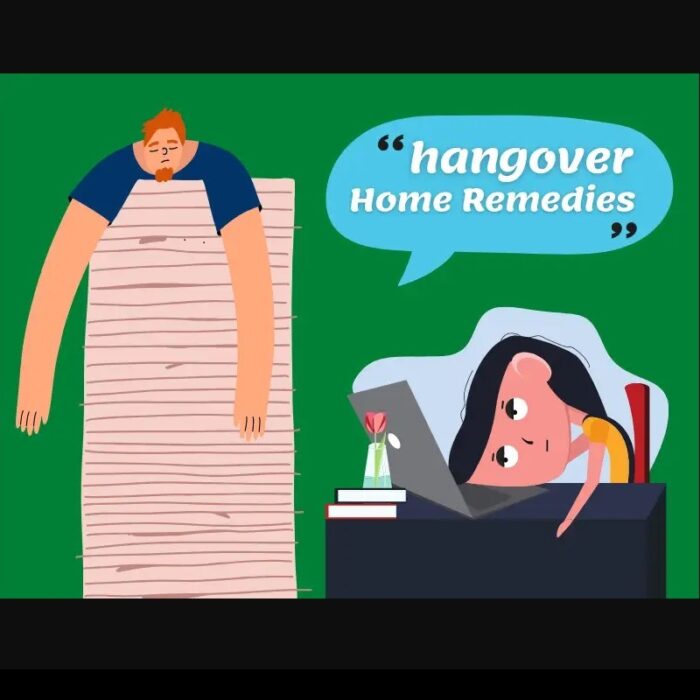6 Natural Remedies To Balance Your Hormones

In the hustle and bustle of daily life, there are a lot of things that go unnoticed. But that shouldn’t be the case, especially when it comes to your health. Hormonal imbalance is one of the most common health issues that many women seem to be unaware of until they notice symptoms like acne or sudden weight gain. Not treating it in time can result in symptoms that are difficult to deal with. If you have a hormonal imbalance and want to bring your hormone levels back on track using natural ways, this article may help you. Read on to find out how.
Table Of Contents
- What Is Hormonal Imbalance?
- How To Treat Hormonal Imbalance Naturally
- Signs And Symptoms Of Hormonal Imbalance
- What Causes Hormonal Imbalance?
What Is Hormonal Imbalance?
Hormones are the chemical messengers of the body that are responsible for controlling many major processes, like metabolism and reproduction. They are produced by the endocrine glands. The three major categories are thyroid, adrenals, and sex hormones, and they all work together. When one of these glands produces too much or too little of hormones, it leads to a hormonal imbalance in the body as the other glands have to pitch in, which puts a strain on them and can lead to more imbalance.
If you are among those who are looking for natural options to treat this problem, scroll down. Given below are different ways in which you can treat hormonal imbalance naturally.
How To Treat Hormonal Imbalance Naturally
- Follow A Healthy Diet Including Herbs And Dietary Supplements
- Use Essential Oils
- Do Exercise And Yoga
- Avoid Harmful Chemicals
- Reduce Your Sugar Intake
- Get Sufficient Sleep
Natural Ways To Treat Hormonal Imbalance
1. Follow A Healthy Diet Including Herbs And Dietary Supplements
You can include the following foods, herbs, and supplements in your daily diet to combat hormonal imbalance.
a. Coconut Oil
Coconut oil contains medium-chain fatty acids that are extremely beneficial for your health and provide building blocks for hormones. These fatty acids help reduce the inflammation within your body that might have occurred due to hormonal imbalance (1). Coconut oil is also great for your overall health as it helps you lose weight by boosting your metabolism and reduces stress and anxiety (2).
You Will Need
1-2 tablespoons of 100% virgin coconut oil
What You Have To Do
- Consume one to two tablespoons of 100% virgin coconut oil daily.
- You can either use it in salad dressing and smoothies or replace your cooking oil with it.
How Often You Should Do This
You can do this 2 to 3 times daily.
b. Avocados
Avocado is a rich source of monounsaturated, polyunsaturated, and saturated fatty acids. These fatty acids have anti-inflammatory properties that can help treat hormonal imbalance (3). Regular intake of avocados promotes heart health and also ensures an adequate supply of fiber and nutrients required for good health. It may also help reduce the weight gain due to hormonal imbalance.
You Will Need
1 avocado
What You Have To Do
- Peel an avocado.
- Cut it into small cubes and add them to your favorite salad.
- You can also blend them with some nut milk and honey to make a healthy smoothie.
How Often You Should Do This
You can consume this daily.
c. Ashwagandha
Ashwagandha is one of the most significant adaptogenic herbs that can help you deal with hormonal imbalance. It helps relieve stress and anxiety – which are the primary causes of hormonal imbalance (4). Ashwagandha also treats thyroid hormone imbalance by stimulating thyroid hormone activity (5).
You Will Need
300-500 mg ashwagandha supplements
What You Have To Do
Consume 300-500 mg of ashwagandha supplements.
How Often You Should Do This
Have these supplements 3 times daily.
d. Yogurt
Yogurt is a rich source of probiotics that can help repair your gut lining and balance your hormones. Probiotics are healthy bacteria that your body needs to function properly. A deficiency in these bacteria can lead to digestion problems and inflammation, which may also lead to hormonal imbalance (6), (7).
You Will Need
A bowl of plain unsweetened yogurt guaranteed to contain natural probiotics
What You Have To Do
Consume a 6 oz dish of plain yogurt.
How Often You Should Do This
You can consume this 1-2 times daily.
e. Omega-3 Fatty Acids
The anti-inflammatory nature of omega-3 fatty acids can work wonders in keeping your hormone levels balanced (8). They provide building blocks to create hormones. These fatty acids not only reduce the inflammation caused by hormonal imbalance but also help alleviate stress and anxiety (9), (10).
You Will Need
250-500 mg of omega-3 fatty acid supplements
What You Have To Do
1. Consume 250-500 mg supplements of omega-3 fatty acid supplements daily.
2. Alternatively, you can consume fatty fish like salmon and sardines.
How Often You Should Do This
You can consume this once daily.
Why This Works
f. Vitamin D
Vitamin D is another important nutrient that is actually a hormone within your body. It not only reduces inflammation and balances your hormones but also boosts your overall immunity (11), (12). To activate supplemental vitamin D or sunshine vitamin D, you require magnesium, and to avoid creating magnesium deficiency, take only 1,000-2,000 IU of vitamin D3 per day. Taking both together will increase your vitamin D levels much more than taking vitamin D alone.
You Will Need
1000-2000 IU vitamin D supplements
What You Have To Do
- You must consume around 1000-2000 IU of vitamin D daily.
- You can take supplements for vitamin D or get 30 minutes of sunshine per day. You can also consume cod liver oil or foods like eggs, fish, mushrooms, etc.
How Often You Should Do This
You must consume this on a daily basis.
g. Vitamin C
Vitamin C is great for supporting adrenal health and is thus a great way to regulate your hormones (13).
You Will Need
250-500 mg vitamin C
What You Have To Do
Consume 250 to 500 mg of vitamin C daily. You can do this by either increasing your intake of foods rich in vitamin C, like citrus fruits and green leafy veggies, or take additional supplements for it. Make sure you consult a doctor before taking any supplements.
How Often You Should Do This
Incorporate vitamin C into your daily diet for the best results.
h. Magnesium
Magnesium is active in over 600 metabolic processes in the body and is thus essential for balancing your hormones. The adrenals also depend on magnesium for proper function (14).
You Will Need
600 mg of magnesium
What You Have To Do
- Take 600 mg of elemental magnesium per day.
- Consume foods rich in magnesium like green veggies, legumes, and nuts if you are looking for natural sources of the mineral.
How Often You Should Do This
Do this on a daily basis.
i. Multiple Minerals
The thyroid requires nine minerals to make thyroid hormones. They are iodine, selenium, magnesium, copper, zinc, molybdenum, manganese, boron, and chromium. Look for a multiple mineral supplement that includes most or all of these minerals.
Caution
Consult a natural medicine doctor before taking additional nutrient supplements.
2. Use Essential Oils
Using essential oils for a quick massage or diffusing them in your surroundings is another great way to treat a hormonal imbalance. Give yourself a timeline when using essential oils. If you don’t notice that they are helping within 3-4 weeks, discontinue and try another essential oil but don’t use too many at once and don’t use them indefinitely.
Note: These oils alone can not give effective results. Along with them, you need to maintain a healthy lifestyle for beneficial results.
a. Clary Sage Oil
Clary sage oil contains phytoestrogens that can help balance hormones like estrogen. It can also help regulate the menstrual cycle and combat anxiety and depression (15).
You Will Need
- 3-5 drops of clary sage oil
- 10 drops of coconut oil
What You Have To Do
- Add a few drops of clary sage oil to a diffuser and allow it to diffuse in your surroundings.
- You can also mix clary sage oil with coconut oil and massage it gently on your stomach, behind your neck, and on the soles of your feet.
How Often You Should Do This
You must do this daily until you see an improvement in your condition.
b. Fennel Oil
A healthy gut is very important for the healthy functioning of your hormonal glands. Regular use of fennel oil can improve your gut health and digestion and reduce inflammation in the gut (16), (17). This, in turn, helps treat hormonal imbalance.
You Will Need
Fennel oil (as required)
What You Have To Do
- Add a drop of fennel oil to a glass of water and consume it.
- You can also massage fennel oil on your stomach and the soles of your feet.
How Often You Should Do This
You must follow this procedure on a daily basis.
c. Lavender Oil
Lavender essential oil has the ability to calm and soothe you with its pleasant aroma. It can promote sleep and treat moodiness, stress, and anxiety, which are the symptoms of hormonal imbalance (18).
You Will Need
3-5 drops of lavender oil
What You Have To Do
- Put a few drops of lavender oil in a diffuser and switch it on.
- You can also add a few drops of lavender oil to your bathwater and soak in it for 15 to 20 minutes.
How Often You Should Do This
You must do this on a daily basis.
d. Thyme Oil
Thyme oil is known to increase the production of progesterone and helps treat the symptoms of hormonal imbalance, like infertility, PCOS, stress, hair loss, and insomnia (19), (20).
You Will Need
Thyme oil (as required)
What You Have To Do
- Add 10 drops of thyme oil to your bath and soak in it for 15 to 20 minutes.
- Alternatively, you can also mix three drops of thyme oil with a few drops of coconut oil and massage it into your abdomen.
How Often You Should Do This
Do this daily.
3. Do Exercise And Yoga
You will be surprised to know that even simple workouts can be beneficial in combating hormonal imbalance naturally. Some exercises and yoga asanas that can help are listed below.
a. Walking

Walking in nature can help reduce stress and anxiety. It is not only great for your overall health but also keeps your hormone levels in control.
Duration
20 to 30 minutes
b. High-Intensity Interval Training (HIIT)

HIIT not only helps you burn those extra pounds, but it also helps in strengthening your heart and lungs and increasing the production of human growth hormone (HGH). However, if you are sweating copious amounts, be aware that you are also sweating out your minerals. As noted above, minerals are very important for keeping your hormones balanced. Keep yourself hydrated using sea salt water. Drink half your body weight (measured in pounds) in ounces of water. To every quart of drinking water, add ¼ teaspoon of unrefined sea salt.
Duration
15 to 20 minutes
c. Resistance And Weights

training can keep your cortisol levels under control and help you build muscles. This can also have a positive effect on your hormonal problems.
Repetitions
8 to 12
d. Sasangasana

Also known as Rabbit Pose, this yoga asana helps stimulate the thyroid and parathyroid glands and combat depression.
Duration
30 seconds
Repetitions
3
e. Bhujangasana

This yoga asana is also known as the Cobra Pose. It helps massage the adrenal glands, thereby improving their functioning. The neck tilted back in this pose also massages the thyroid. This pose can also help relieve stress and tension, especially in the lower back.
Duration
1 minute
Repetitions
3 to 6
f. Ustrasana

Ustrasana (Camel Pose) has quite a lot of benefits. It can help stimulate the internal organs, including the thyroid and parathyroid glands.
Duration
30 seconds
Repetitions
3
4. Avoid Harmful Chemicals
Avoid using anything that contains harmful chemicals. This includes your cosmetics and body care products. Remember, your skin will absorb whatever you apply to it. Do not use any products that contain potentially harmful chemicals like sodium lauryl sulfate, parabens, DEA, and propylene glycol. You must also be well aware of the effects of any medications or birth control pills on your health and hormones.
5. Reduce Your Sugar Intake
Hormonal imbalance is a result of many factors, one of which is the consumption of too much refined sugar. When you consume more sugar, the pancreas secretes more insulin. High levels of insulin can lead to the excess production of testosterone, which may prevent normal ovulation. High levels of insulin are also responsible for fat storage and weight gain. Thus, it is best to reduce the intake of refined sugar to keep your hormones well balanced.
6. Get Sufficient Sleep
It is very important that you get enough rest and sleep every day. Disrupted sleeping patterns can cause hormonal imbalance and also suppress ovulation. This may also lead to other symptoms that are associated with hormonal imbalance like stress, anxiety, and depression.
A combination of the above methods helps restore hormonal balance. If you are already on medications for hormonal issues, these remedies will increase their effectiveness.
How do you understand if you have a hormonal imbalance? Check for the following signs and symptoms.
Signs And Symptoms Of Hormonal Imbalance
Hormonal imbalance is characterized by a broad range of signs and symptoms, depending on which hormones or glands are not functioning properly.
The symptoms of hormonal imbalance are usually different for women, men, and children. Some signs and symptoms that are common to both men and women are:
- Fatigue
- Weight gain
- Increased sensitivity to cold or heat
- Constipation or diarrhea
- Puffy face or dry skin
- Unexplained and sudden weight loss
- Weight loss
- Weakened muscles
- Increased thirst and frequent urination
- Pain or stiffness in joints
- Thinning and brittle hair
- Depression
- Decreased libido
- Anxiety
- Infertility
- Sweating
- Blurred vision
- Purple or pink stretch marks
Hormonal imbalance is usually triggered by a wide range of medical conditions and health factors. They are as discussed below.
What Causes Hormonal Imbalance?
The common causes of hormonal imbalance are:
- A poor diet leading to nutrient deficiencies – especially minerals, vitamin C, and B vitamins.
- Diabetes
- Hypothyroidism
- Hyperthyroidism
- Hypogonadism
- Thyroiditis
- Hormone therapy
- Tumors
- Certain medications
- Stress
- Eating disorders
- Injury or trauma
- Cancer treatments
- Menopause
- Pregnancy
- Breastfeeding
- PCOS (Polycystic Ovarian Syndrome)
- Contraceptive pills
- Primary ovarian insufficiency
If you display some of the symptoms listed along with one or more of the above conditions, go for a medical examination to understand what could have triggered the hormonal imbalance.
Without further delay, get started with these remedies and tips to restore your hormonal balance.
Readers’ Questions
Q. What are the types of hormonal imbalances?
A. There are various types of hormonal imbalances that may be due to dysfunctioning of the endocrine glands. Some of them include:
- Progesterone deficiency hormonal imbalance
- Estrogen deficiency hormonal imbalance
- Excess estrogen hormonal imbalance
- Estrogen dominance
- Excess androgen hormonal imbalance
- Cortisol deficiency hormonal imbalance via the adrenals
- Hypothyroidism
Q. Why do hormonal imbalances affect the entire body?
A. Since most of the major processes are controlled by hormones, a hormonal imbalance can affect the functioning of your entire body.
Q. Can I get pregnant if I have a hormone imbalance?
A. Yes, you can get pregnant even if you have a hormonal imbalance. However, you will always be at the risk of infertility if you leave your condition untreated for a long time.
References
Intahphuak, S et al. “Anti-inflammatory, analgesic, and antipyretic activities of virgin coconut oil.” Pharmaceutical Biology vol. 48,2 (2010): 151-7.
https://pubmed.ncbi.nlm.nih.gov/20645831/
Yeap, Swee Keong et al. “Antistress and antioxidant effects of virgin coconut oil in vivo.” Experimental and Therapeutic Medicine vol. 9,1 (2015): 39-42.
https://www.ncbi.nlm.nih.gov/pmc/articles/PMC4247320/
Park, Eunyoung et al. “Avocado Fruit on Postprandial Markers of Cardio-Metabolic Risk: A Randomized Controlled Dose Response Trial in Overweight and Obese Men and Women.” Nutrients vol. 10,9 1287.
https://www.ncbi.nlm.nih.gov/pmc/articles/PMC6164649/
Singh, Narendra et al. “An overview on ashwagandha: a Rasayana (rejuvenator) of Ayurveda.” African Journal of Traditional, Complementary, and Alternative medicines : AJTCAM vol. 8,5 Suppl (2011): 208-13.
https://www.ncbi.nlm.nih.gov/pmc/articles/PMC3252722/
Panda, S, and A Kar. “Changes in thyroid hormone concentrations after administration of ashwagandha root extract to adult male mice.” The Journal of Pharmacy and Pharmacology vol. 50,9 (1998): 1065-8.
https://pubmed.ncbi.nlm.nih.gov/9811169/
Hemarajata, Peera, and James Versalovic. “Effects of probiotics on gut microbiota: mechanisms of intestinal immunomodulation and neuromodulation.” Therapeutic Advances in Gastroenterology vol. 6,1 (2013): 39-51.
https://www.ncbi.nlm.nih.gov/pmc/articles/PMC3539293/
Shadnoush, Mahdi et al. “Probiotic yogurt Affects Pro- and Anti-inflammatory Factors in Patients with Inflammatory Bowel Disease.” Iranian Journal of Pharmaceutical research : IJPR vol. 12,4 (2013): 929-36.
https://pubmed.ncbi.nlm.nih.gov/24523774/
Ouladsahebmadarek, Elaheh et al. “Hormonal and metabolic effects of polyunsaturated fatty acid (omega-3) on polycystic ovary syndrome induced rats under diet.” Iranian Journal of Basic Medical Sciences vol. 17,2 (2014): 123-7.
https://www.ncbi.nlm.nih.gov/pmc/articles/PMC3976750/
Kiecolt-Glaser, Janice K et al. “Omega-3 supplementation lowers inflammation and anxiety in medical students: a randomized controlled trial.” Brain, Behavior, and Immunity vol. 25,8 (2011): 1725-34.
https://www.ncbi.nlm.nih.gov/pmc/articles/PMC3191260/
Su, Kuan-Pin et al. “Omega-3 Polyunsaturated Fatty Acids in Prevention of Mood and Anxiety Disorders.” Clinical Psychopharmacology and Neuroscience : the Official Scientific Journal of the Korean College of Neuropsychopharmacology vol. 13,2 (2015): 129-37.
https://pubmed.ncbi.nlm.nih.gov/26243838/
Morris, Howard A. “Vitamin D: a hormone for all seasons–how much is enough?.” The Clinical biochemist. Reviews vol. 26,1 (2005): 21-32.
https://www.ncbi.nlm.nih.gov/pmc/articles/PMC1240026/
Lin, Ming-Wei, and Meng-Hsing Wu. “The role of vitamin D in polycystic ovary syndrome.” The Indian Journal of Medical Research
vol. 142,3 (2015): 238-40. doi:10.4103/0971-5916.166527https://www.ncbi.nlm.nih.gov/pmc/articles/PMC4669857/
Patak, P et al. “Vitamin C is an important cofactor for both adrenal cortex and adrenal medulla.” Endocrine Research vol. 30,4 (2004): 871-5. doi:10.1081/erc-200044126
https://pubmed.ncbi.nlm.nih.gov/15666839/
Garg, Meenakshi et al. “Hormonal imbalance and disturbances in carbohydrate metabolism associated with chronic feeding of high sucrose low magnesium diet in weanling male wistar rats.” Molecular and Cellular Biochemistry vol. 389,1-2 (2014): 35-41.
https://pubmed.ncbi.nlm.nih.gov/24390085/
Lee, Kyung-Bok et al. “Changes in 5-hydroxytryptamine and cortisol plasma levels in menopausal women after inhalation of clary sage oil.” Phytotherapy Research : PTR vol. 28,11 (2014): 1599-605.
https://pubmed.ncbi.nlm.nih.gov/24802524/
Badgujar, Shamkant B et al. “Foeniculum vulgare Mill: a review of its botany, phytochemistry, pharmacology, contemporary application, and toxicology.” BioMed Research International vol. 2014 (2014): 842674.
https://www.ncbi.nlm.nih.gov/pmc/articles/PMC4137549/
Choi, Eun-Mi, and Jae-Kwan Hwang. “Antiinflammatory, analgesic and antioxidant activities of the fruit of Foeniculum vulgare.” Fitoterapia vol. 75,6 (2004): 557-65.
https://pubmed.ncbi.nlm.nih.gov/15351109/
Kianpour, Maryam et al. “Effect of lavender scent inhalation on prevention of stress, anxiety and depression in the postpartum period.” Iranian journal of nursing and midwifery research vol. 21,2 (2016): 197-201.
https://www.ncbi.nlm.nih.gov/pmc/articles/PMC4815377/
Rasekhjahromi, Athar et al. “Herbal Medicines and Ovarian Hyperstimulation Syndrome: A Retrospective Cohort Study.” Obstetrics and Gynecology International vol. 2016 (2016): 7635185.
https://www.ncbi.nlm.nih.gov/pmc/articles/PMC5027042/
Nagoor Meeran, Mohamed Fizur et al. “Pharmacological Properties and Molecular Mechanisms of Thymol: Prospects for Its Therapeutic Potential and Pharmaceutical Development.” Frontiers in Pharmacology vol. 8 380.
https://www.ncbi.nlm.nih.gov/pmc/articles/PMC5483461/































